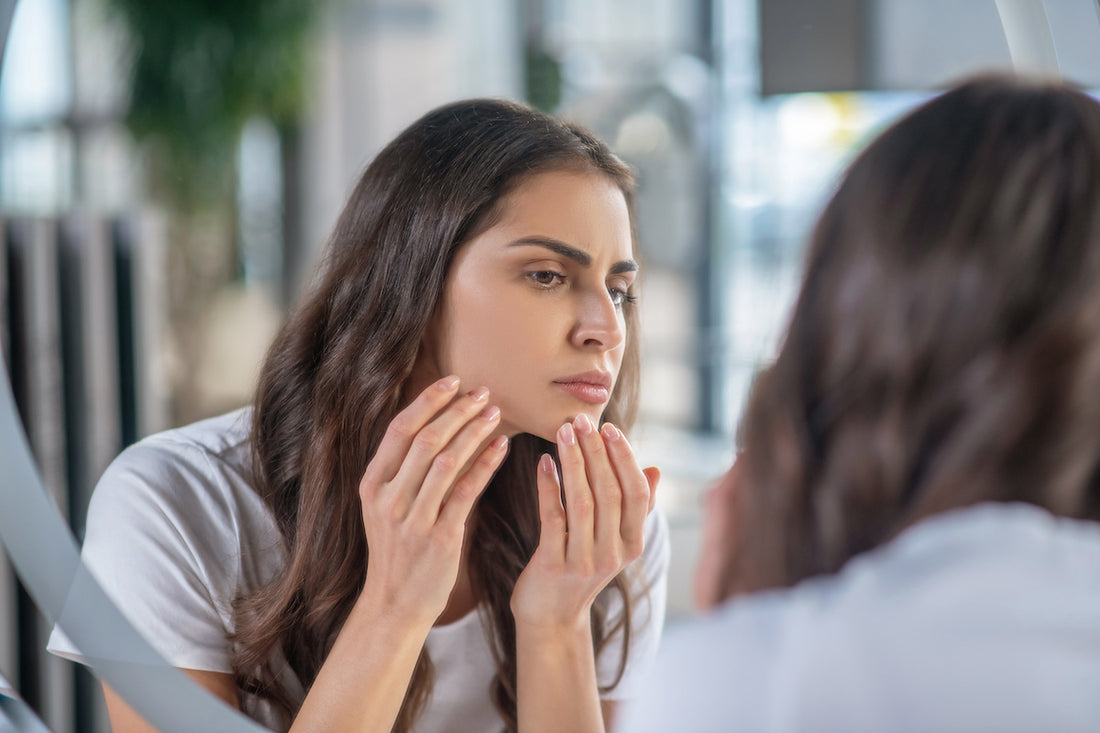
Skin Assessment: How to Keep On Top of Your Skin Health
Share
Have you ever realised that we often get into a skin routine that we just blindly follow because it’s what we’ve been doing for years? Even as we age and our skin changes, many people don’t realise the signs that their skin needs a little more attention. We might have our favourite lotions and creams and swear by them – but have you ever taken the time to do a skin assessment to look for warning signs that you are not giving your skin what it actually needs?
You Should Be Assessing Your Skin Regularly
Dermatologists recommend that we give ourselves a head-to-toe skin assessment on a regular basis – preferably once a month - to make sure we aren’t missing possible signs of cancer or generally unhappy skin.¹,² As we age, we will see changes taking place with our skin. Most of these changes are completely normal and just a sign of ageing while others will need closer attention.
What to Look for During a Skin Assessment
Luckily, most skin conditions can be treated with a high grade lotion or cream but some will need professional care. Here are the signs of more serious conditions you should be looking for when doing a skin assessment at home:
- Moles and growths that seem to be changing in size, shape, colour or texture²
- Any sores that continue to itch, bleed, scab or hurt and don’t seem to heal²
- Any red and firm bumps¹
- Any unusual lesions which may be flat or raised, skin colour or dark, firm or scaly¹
- Pale patches of skin with a different texture than the rest of your skin¹
If you notice any of these symptoms on your skin, book a professional skin assessment with a dermatologist as soon as possible to eliminate possible signs of cancer.
However, there are also signs your skin can be showing that are less serious but still deserve your attention if you want skin that is at its optimal health and protecting you. These will be signs that your skin care routine might need a change:
- Skin that feels tight
- Spots of dry, scaly or itchy skin
- Extremely dry or cracked skin
- Areas of skin blemishes or breakouts
- Skin that looks red, irritated or inflamed
- Oily skin
- Skin that looks dull and thin
If you notice any of these signs, the good news is that you can help your skin by making some simple changes.
How Can I Look After My Own Skin?
You can take some simple steps to making sure you are keeping your skin healthy and youthful – from your own home!
◆ Remember to exfoliate once in a while to rid your skin of the build-up of dead skin cells and impurities on the surface to give your skin a smoother texture and more youthful glow.
◆ Make sure that your skin is getting enough moisture and hydration by using a good quality lotion such as Skin MD Natural Shielding Lotion. Not only will this shielding lotion help your skin keep its own natural oils and moisture inside, it will also keep external irritants out that dry out your skin and can cause blemishes. Skin MD Natural will even help to heal extremely dry and cracked skin, bringing back plumpness and elasticity.
◆ If you notice the symptoms of irritated or inflamed skin that might be caused by eczema or psoriasis, use a skin care product such as Skin MD Natural that actively fights these symptoms rather than just providing temporary relief.
◆ If you have oily skin, use a light product that won’t clog your pores and contribute to further breakouts.
◆ Always remember to prevent premature ageing by using a product with SPF to protect your skin from sun damage.
Make doing a skin assessment part of your normal skin routine so that you can make sure your skin is being looked after properly. If you’re ever in doubt, book a professional skin assessment. When your skin’s health becomes a priority in your day-to-day life, you will notice just how much better your skin will look and feel.
Written by Martina Joller
Skin & Wellbeing Writer
www.wordsbymartina.com
Connect with me on LinkedIn
¹ https://miiskin.com/dermatology/skin-check-self-examination/
² https://www.skincancer.org/early-detection/self-exams/
